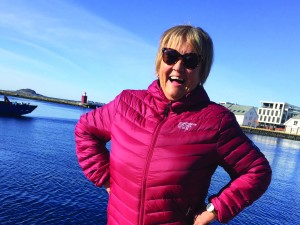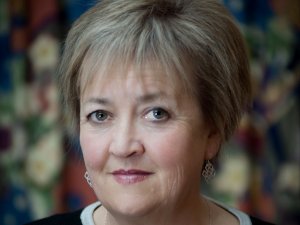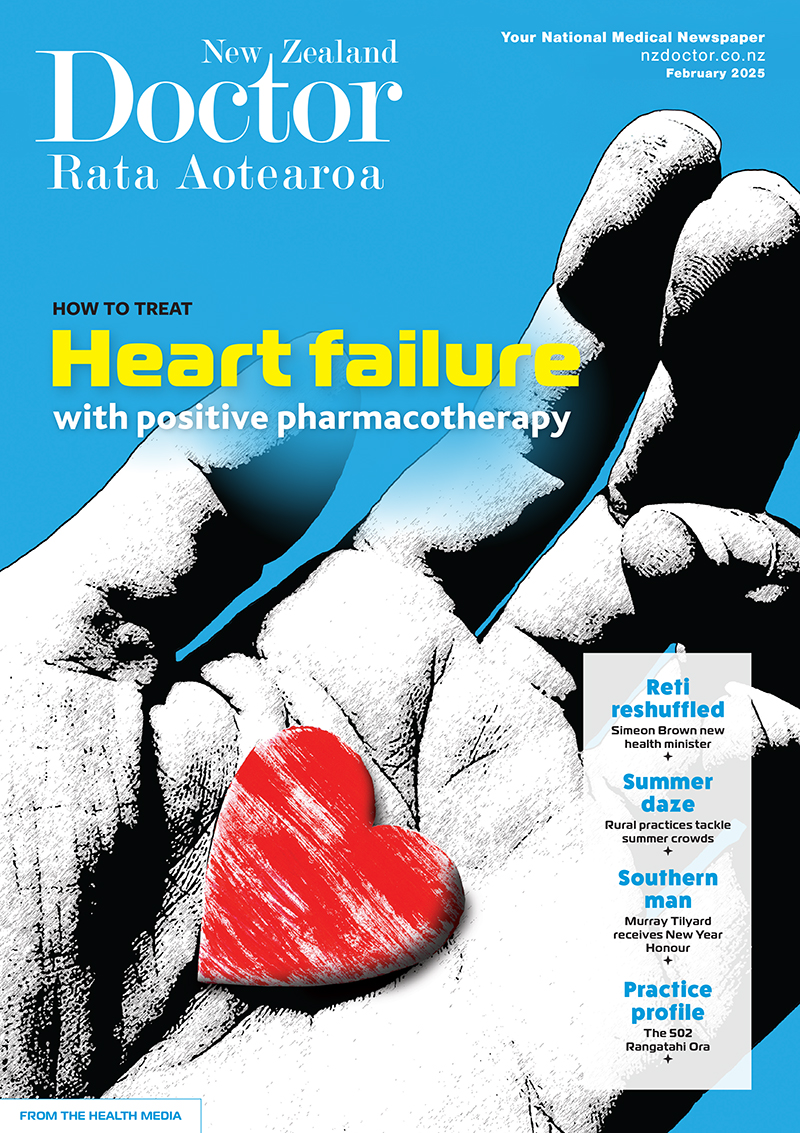Pharmacist prescribers Linda Bryant and Leanne Te Karu discuss positive polypharmacy for heart failure. Current evidence shows the intensive implementation of four medications offers the greatest benefit to most patients with heart failure, with significant reductions in cardiovascular mortality, heart failure hospitalisations and all-cause mortality
Carryer: Voice of a nursing generation - From naive nurse to general-practice sparring partner
Carryer: Voice of a nursing generation - From naive nurse to general-practice sparring partner

Here at New Zealand Doctor Rata Aotearoa we are on our summer break! While we're gone, check out Summer Hiatus: Stories we think deserve to be read again! This article was first published 28 October 2022.
After 30 years at the helm Jenny Carryer stepped back from leading the College of Nurses Aotearoa this year. Fiona Cassie talked to her about the wins, near-misses and frustrations of the job
Politically naive. That, says Jenny Carryer, was her younger self as the newly elected founding president of the College of Nurses Aotearoa in 1992.
“I was actually embarrassingly oblivious,” says the veteran leader, who planned to stick with the college for only a term.
Instead, she has seen a dozen health ministers come and go. Andrew Little is her 13th.
And now, after 30 years with the college – the last 25 as its executive director – Professor Carryer is retiring.
She is also stepping down from her long-standing role as co-chair of the National Nursing Organisations Leaders Group.
You could well argue she has been the voice of nursing for a generation.
“I hope that I’ve been a constant, I think sometimes irritating, voice,” she laughs. It is a voice that battled hard and long to gain recognition and resources for the nurse-practitioner role – described as a failed experiment in 2007 by then health workforce lead Des Gorman.
Demand for NPs now outstrips supply but, after years of training on a shoestring budget, education funding was boosted this year.
“The role is, finally, really taking off!” says Professor Carryer.
Hers has also been a leading voice campaigning for the growth of nursing in primary healthcare. But she has champed at the bit with frustration at the funding and ownership models she sees as limiting the profession’s potential to make a difference.
She is still champing on that one – a position she knows doesn’t win her many friends in the GP fraternity.
The Massey University professor of nursing, a role she is not retiring from yet, is also a champion for the importance of primary healthcare, full stop.
She says the most tedious foe she has faced in 30 years of advocating for her profession is ignorance.
“It’s the endless assumption that the solution to health problems is more medicine, more hospital beds, shortening surgical waiting lists...
“Whereas actually, the answer lies in the community. And it lies in whether people have healthy food, and whether they have safe and dry homes...
“We know all that stuff but we seem to forget it when we do new service designs or implement new processes or policies.
“We always fall into the trap that more medicine equals better health.”
Along with all nurses of her era, Jenny Carryer began her health career in hospitals. She was a student nurse in 1969 at Palmerston North Hospital.
“In those quaint times of white uniforms, separate dress uniforms, red capes, strange and pointless caps and standing up for student nurses who had been there six months longer!” she wrote in Nursing Review in 2012.
On graduating in 1972, she did postgraduate training at Greenlane Hospital then returned to Palmerston North, working in intensive care and coronary care units before becoming charge nurse of an oncology ward for five years.
In the mid-1980s she also started chipping away at her BA in nursing and sociology through Massey University.
By the time the College of Nurses Aotearoa was launched in 1992, she was a part-time nursing tutor at the then Manawatu Polytechnic. A mother of two small children, she had just enrolled in her master’s degree.
Professor Carryer did not aspire to be the college’s first leader, let alone to become its executive director for 25 years.
“But it is funny how life works out,” she says, “because in fact it has been an absolute passion; that blending of practice and policy and politics.”
Her academic career also continued in parallel. She gained a PhD, a professorial chair and a stellar research record, and mentored many nurses in their postgraduate studies along the way.
Over the three decades with the college, she has brought her evidence-based views to numerous taskforces and committees, seen reforms come and go, and worked with the baker’s dozen of health ministers that championed them.
Bill English was the minister who impressed her the most.
Mr English’s strong recognition of the connection between socioeconomic determinants and health struck a chord, she says. “And he didn’t seem quite so focused on surgical waiting lists as the only indicator of success.”
She was also a member of his 1998 Ministerial Taskforce on Nursing that paved the way for NPs and new graduate nurse support programmes. She adds: “But Annette King was obviously the most effective [minister] I’ve ever worked with.”
Under Mrs King, NPs became a reality and the 2001 Primary Health Care Strategy was launched.
By then, Professor Carryer had developed a passion for primary healthcare and its critical role in population health.
The importance of health outside hospitals has also been brought home, while supervising students’ clinical placements in primary healthcare settings. So, she had high aspirations for the 2001 strategy: “And they were very quickly crushed,” she says. “Because, almost immediately, people in the ministry started talking about the ‘primary care’ not ‘primary healthcare’ strategy.”
Her vision was of primary health organisations (PHOs) being large multidisciplinary healthcare teams providing a kind of one-stop shop for integrated care across the community.
“I had no idea PHOs would simply become a management organisation for privately owned general practice,” says Professor Carryer.
Some PHOs were truer to the strategy than others, but her hopes of its bringing a new start for the sector, including nurses no longer being GP employees, were dashed.
The way Professor Carryer views primary healthcare ownership, as outlined in a 2019 New Zealand Doctor Rata Aotearoa opinion piece, has given many GPs food for thought and controversy
Her vision is of nurse-led and NP-led primary health wellness centres providing free healthcare with the support of allied health teams.
She sees these wellness centres coexisting with urgent-care centres staffed by doctors and nurses, and alongside specialist GPs delivering free, integrated primary and secondary care services to a community.
“It won’t win me any friends or admiration from the general practice community,” she acknowledges.
“But it is a pragmatic look at what are we going to do about the rapidly declining GP workforce.”
She says she isn’t naive enough to think hers is the perfect vision or that there are simple solutions to workforce shortages. Neither does she believe that more nurse or NP ownership of general practices is an answer; she is more interested in changing the current model of care.
“GPs are clearly a precious resource,” says Professor Carryer.
“I’ve got a fabulous GP. But I can also see the writing on the wall about numbers and demand. So, we need to think carefully about how we utilise that [GP]resource.”
She is also unsure whether the latest reforms and localities will provide a solution: “I’m naturally optimistic but at the moment I’m reserving judgement, really.”
Noting with concern the lack of an evaluation of why the Primary Health Care Strategy failed, she says: “[We] should have done that before embarking on another set of reforms.”
Meanwhile, nursing has read the future and stepped up as a profession, she says. It has aligned undergraduate and postgraduate education to provide a flexible nursing workforce that has anticipated health-system need, including an “infinitely greater awareness” of primary health nursing.
Professor Carryer remains frustrated, though, that 50 years on from days of the red capes and starched caps, nursing is still too often undervalued and patronised by the media, employers and health bureaucrats.
It is more than time to move on, she argues, from the notion of nurses as “unseen, unheard worker bees” quietly tolling in the background.
And she is adamant nursing leaders should not still be fighting to ensure a place at the policy table or the right to pull more of the levers that fund and influence the profession’s future, including nursing education.
It’s one of the enduring frustrations after three decades at the college. But she has thoroughly enjoyed the work and, in particular, the frequent feedback from nurses acknowledging her influence on their careers.
“I’ve had nurses say to me, nurses I’ve never met, that I have been their mentor just through my writing. And that is my proudest thing.
“I really love to think I’ve made a difference to the careers of individual nurses either through teaching, writing or speaking...”
Professor Carryer is to continue that role for some time yet as she remains working part-time at Massey, supervising PhD students.
She has also recently taken on memberships of the Federation of Primary Health Care board and Third Age Health’s clinical board.
She plans to devote more time to her obsession with pickleball (a cross between badminton and tennis), aiming to do eight hours a week. She will also spend more time travelling with her husband and friends and is considering volunteer work, possibly in the area of prisoner rehabilitation.
After 30 years, this irrepressible force will also no doubt keep an eye on health politics – in honour of that naive nurse of the 1990s.
Professor of nursing, Massey University – current
Executive director, College of Nurses Aotearoa – 1997 to 2022
Chair/co-chair, National Nursing Organisations Leadership group – 2010 to 2022
Companion of the New Zealand Order of Merit – 2020
Doctor of Philosophy – 1998
Founding president, College of Nurses Aotearoa – 1992 to 1997
Registered nurse – 1972








